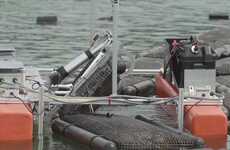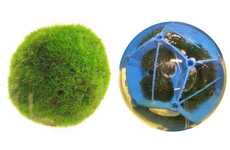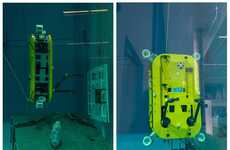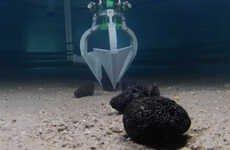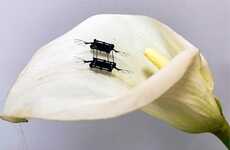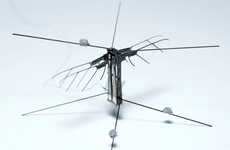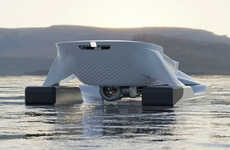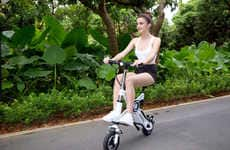
These Mussel-Like Robots are Studying the Impact Of Climate Change
Rahul Kalvapalle — October 18, 2016 — Eco
References: northeastern.edu & newatlas
A group of researchers and engineers led by professor Brian Helmuth over at Northeastern University have developed a compact and exceptionally high-tech marine robot that is designed to make use of an array of sensors to monitor the impact of climate change on underwater environments.
These marine robots' designs were inspired by mussels, and accordingly these robots were attached to mussel beds in locations around the world. This was done due to the fact that mussels' body temperatures are known to be a strong indicator of marine and air temperature variations. By placing the robotic mussels in different regions across the world, the project benefits from the ability to compare marine environments in differing environments.
By wirelessly conveying data to the scientific team, these mussel-inspired marine robots help scientists develop strategies to battle the deleterious effects of climate change on the mussels' natural habitats.
These marine robots' designs were inspired by mussels, and accordingly these robots were attached to mussel beds in locations around the world. This was done due to the fact that mussels' body temperatures are known to be a strong indicator of marine and air temperature variations. By placing the robotic mussels in different regions across the world, the project benefits from the ability to compare marine environments in differing environments.
By wirelessly conveying data to the scientific team, these mussel-inspired marine robots help scientists develop strategies to battle the deleterious effects of climate change on the mussels' natural habitats.
Trend Themes
1. Marine Robotics - The development of advanced and compact marine robots could revolutionize marine research and resource management.
2. Climate Change Monitoring - The use of high-tech marine robots to monitor and assess the impact of climate change on marine ecosystems is a growing trend.
3. Bio-inspired Design - Drawing inspiration from the natural world to design innovative robots can pave the way for new breakthroughs in marine research.
Industry Implications
1. Marine Research - Innovative marine robots like these could bring a disruptive shift to the way marine research is conducted and resources are managed.
2. Environmental Science - The application of robotics and sensing technology for climate change research and monitoring has significant implications for the environmental science industry.
3. Robotics and Automation - There is a growing market for advanced robots and automation systems with high precision sensing capabilities that cater to the marine industry.
2.8
Score
Popularity
Activity
Freshness

